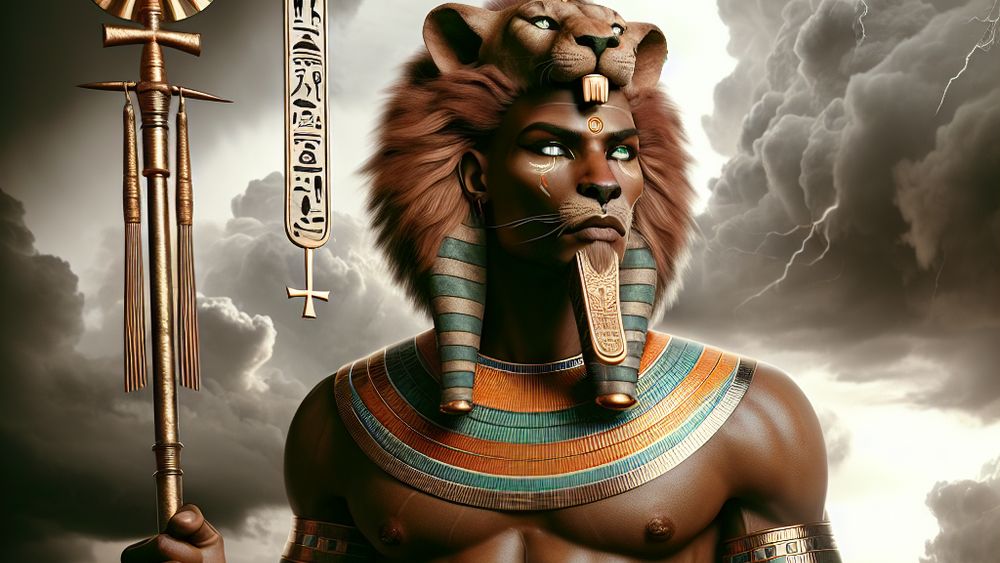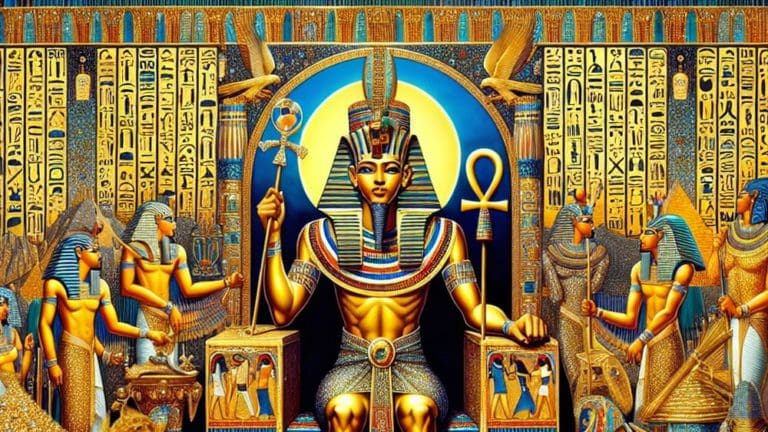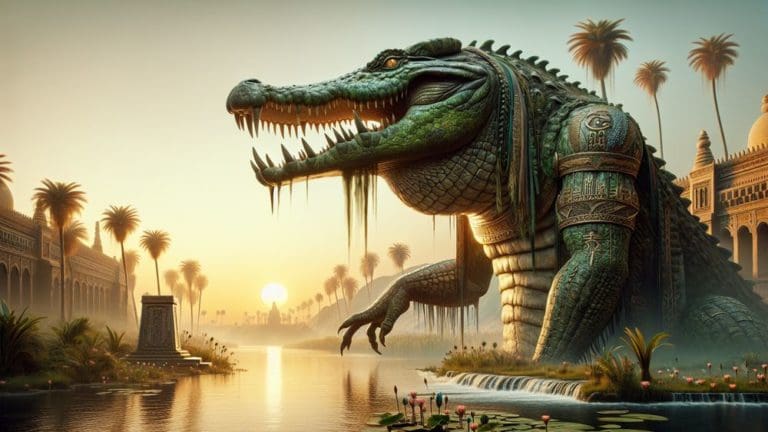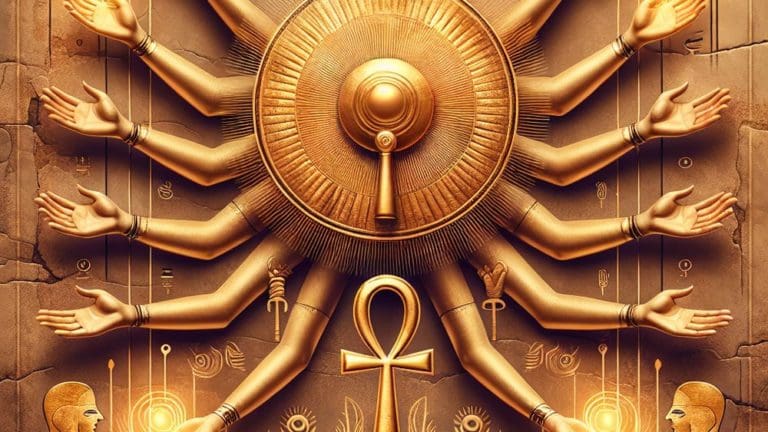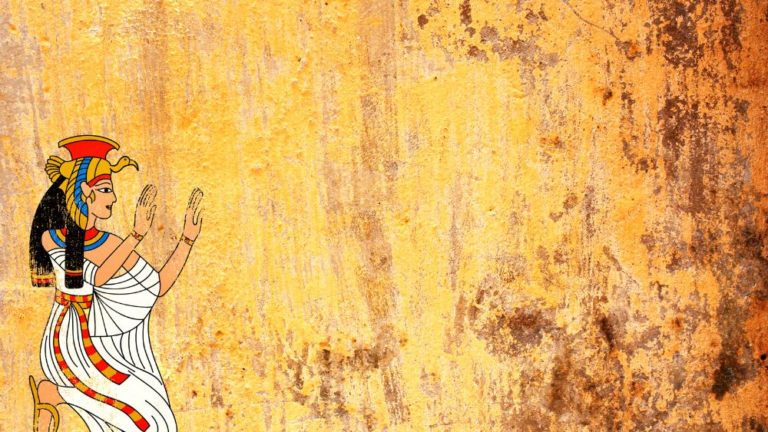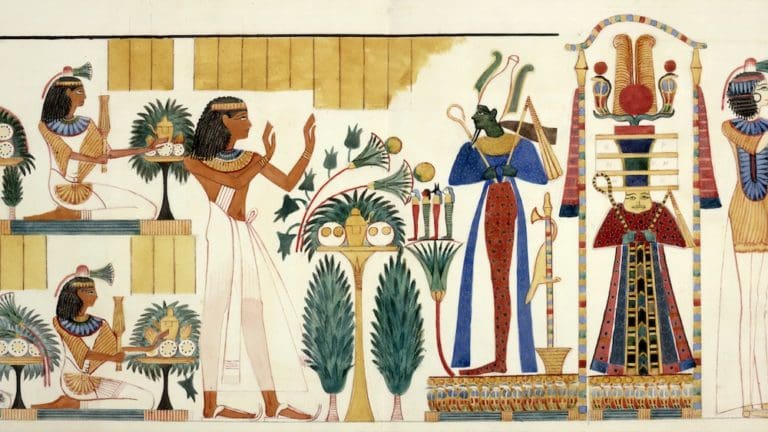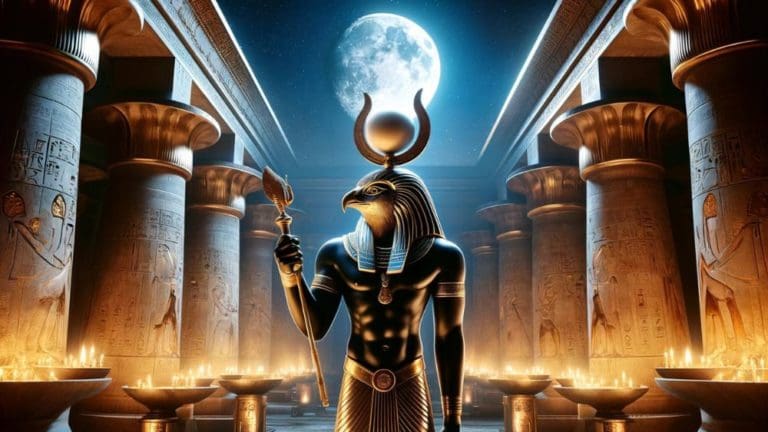Egyptian God Maahes: The Fierce Lion Of War And Protection
Egyptian God Maahes: The Fierce Lion Of War And Protection
Every corner of the Earth holds secrets of the past, wrapped in the mystique of time and ancient tales. But few civilizations spark the imagination quite like the grandeur of Ancient Egypt. Among its pantheon of gods and goddesses, the egyptian god maahes strikes a compelling figure, embodying the fierceness and protection often associated with the lion. His story beckons history enthusiasts, travelers, and amateur archaeologists alike to explore the depths of Egyptian mythology and uncover the secrets lying within.
Key Points:
- Maahes, the Egyptian god, symbolizes war, protection, and justice.
- He is the son of Ptah and Sekhmet, representing creation and destruction.
- Maahes is depicted with lion attributes, emphasizing strength and royalty.
- Worship of Maahes included rituals, festivals, and offerings for protection.
- His role as protector of pharaohs and sacred spaces was integral to Egyptian society.
- Maahes had connections with Ra and Sekhmet, showcasing interwoven Egyptian mythology.
- The lion symbolism associated with Maahes highlights his dual nature of protection and wrath.
Maahes, often overlooked in favor of more widely known deities, offers an intriguing window into the ancient world, presenting tales of valor, war, and protection. As the guardian of sacred spaces and the protector of the pharaohs, he occupies a significant place in Egyptian lore. The lion god invites us on a journey of discovery, urging us to delve into the legends of the past with curiosity and enthusiasm.
Unveiling Maahes: The Lion God of Ancient Egypt
The mention of Maahes evokes images of majesty and might, characteristics well fitting for a deity represented by the lion, often considered the king of beasts. As we peel back the layers of history, Maahes emerges as a multifaceted god of war and protection, reminding us of the complex nature of ancient Egyptian belief systems.
Origins and Historical Significance of Maahes
The lion god Maahes first roared into the annals of history during Egypt’s New Kingdom, a period marked by prosperity, cultural flowering, and military might. Seen as the son of the creator god Ptah and the lioness goddess Sekhmet, Maahes symbolizes the confluence of creation and destruction, a testament to the Egyptians’ nuanced understanding of the natural world. His worship, primarily concentrated in the city of Leontopolis, underscores the importance of lions in Egyptian culture as protectors and symbols of royal authority.
Maahes, the lion god in Ancient Egypt, embodies the balance between creation and destruction, reflecting the Egyptians’ deep appreciation for the natural world.
Maahes in Egyptian Mythology: Roles and Attributes
Maahes, revered in ancient Egyptian mythology, wielded several roles that underscored his significance among the pantheon of deities.
- Protector of the Pharaoh: Maahes was seen as a guardian of the pharaohs, embodying the fierce loyalty and strength of a lion.
- God of War: His prowess in battle made him a symbol of victory and a patron for soldiers, ensuring their success against enemies.
- Avenger of Wrongs: Maahes was invoked to administer justice, rooting out evil with the severity of a lion’s judgment.
- Guardian of Sacred Spaces: As a protector of temples and sacred sites, he ensured these spaces remained untainted by earthly concerns.
Maahes’s diverse roles reflect the Egyptians’ complex relationship with the divine, viewing gods as integral to every aspect of existence, from the battlefield to the sanctity of religious spaces.
The Iconography of Maahes: Understanding the Lion Symbolism
The iconography of Maahes is steeped in the rich tapestry of Egyptian art, offering insights into his worship and the cultural significance of lions in ancient Egypt.
| Symbol | Representation | Significance |
|---|---|---|
| Lion’s Head | Strength and Royalty | Maahes’s association with lions underscores his role as a protector and symbol of royal power. |
| Knife or Sword | Warfare and Protection | These weapons highlight Maahes’s aspects as a god of war and a defender of justice. |
| Solar Disk | Divine Connection | The solar disk atop his head connects Maahes with the sun god Ra, symbolizing his divine authority and power. |
These symbols collectively paint a picture of Maahes as a fierce yet benevolent deity, embodying the dual aspects of protection and wrath in his association with the majestic lion.

Maahes is depicted as a fierce yet benevolent deity, embodying the dual aspects of protection and wrath through his association with the majestic lion.
The Worship and Cult of Maahes
The fierce lion god Maahes was revered in ancient Egypt not only as a symbol of war and protection but also as a guardian of sacred places. His worshippers venerated him with rituals and offerings, hoping to invoke his strength and benevolence. The cult of Maahes integrated seamlessly into the rich tapestry of Egyptian religious practices, reflecting the society’s deep connection with the natural and supernatural world.
Principal Centers of Worship and Temples Dedicated to Maahes
Tributes to Maahes were concentrated in the cities of Leontopolis and Taremu, significant centers where the god’s presence was especially revered. These locations housed grand temples dedicated to him, adorned with statues and reliefs depicting Maahes in his lion form, capturing the essence of his fierce and protective nature. Pilgrims and priests would gather in these sacred spaces to appease the god and seek his blessings for war and safety.
Rituals and Festivals: Celebrating the Lion God
The devotion to Maahes was marked by vibrant rituals and festivals that brought communities together in his honor.
- Seasonal Feasts: Communities celebrated the changing of seasons with feasts that acknowledged Maahes’ role in the natural cycle, symbolizing rebirth and protection.
- Offering Ceremonies: Devotees presented offerings of food, incense, and sculptures at temples, hoping to gain favor and protection from the lion god.
- Processions: Symbolic processions featuring priests adorned in lion skins re-enacted Maahes’ mythological battles, inspiring awe and reverence among participants.
These celebrations did more than just venerate a deity; they strengthened societal bonds and reaffirmed the collective faith in Maahes’ power.
Devotees celebrated Maahes through vibrant rituals and festivals that not only honored the lion god but also fostered community unity and faith in his protective powers.
The Connection Between Maahes and Other Egyptian Deities
Maahes held a unique position in the pantheon of Egyptian gods by embodying aspects of war, protection, and weather phenomena. This led to fascinating connections with other deities.
- Ra: As a son of Ra, Maahes was closely linked to the sun god, sharing aspects of light and heat that symbolized life and destruction.
- Sekhmet: He was often associated with Sekhmet, the warrior goddess, reflecting shared attributes of ferocity and guardianship.
These relationships highlighted the complex and interwoven nature of Egyptian mythology, where gods and goddesses not only had distinct roles but also collaborated and interacted in the mythological narrative.

FAQs
1. How was Maahes depicted in ancient Egyptian art?
In ancient Egyptian art, Maahes was typically depicted as a man with a lion’s head or as a lion itself, showcasing his fierce and protective nature. This representation highlighted his dual role as a protector of the pharaohs and a god of war, embodying the strength and valor of a lion.
2. What were the main functions of Maahes in Egyptian mythology?
The main functions of Maahes in Egyptian mythology involved protection and warfare. He was revered as a guardian deity, defending the good and combating evil forces. Maahes’ fierce demeanor played a crucial role in safeguarding the pharaoh’s power and maintaining balance, showcasing his significance in ancient Egyptian religious practices.
3. Can you explain the significance of Maahes’ association with lions?
The significance of Maahes’ association with lions stems from the animal’s symbolism of power, bravery, and protection in ancient Egypt. Lions were seen as royal animals, embodying the qualities of a warrior deity. This connection emphasizes Maahes’ role as a protector deity, who embodies the courage and strength of a lion.
4. How did the worship of Maahes influence ancient Egyptian society?
The worship of Maahes influenced ancient Egyptian society by instilling values of courage, strength, and protection. This reverence reinforced the societal norms surrounding power dynamics and the sacred protection of leaders. Maahes’ divine guardianship was integral to the cultural ideology of warfare and leadership within ancient Egyptian civilization.
Conclusion
The exploration into the mystique of the Egyptian god Maahes unveils a fascinating facet of ancient Egyptian religion and culture, highlighting the complexities of their pantheon. Through the fierce lion of war and protection, we glimpse the ancient Egyptians’ values and beliefs – a civilization deeply interconnected with the divine. The journey to uncover the secrets of Maahes enriches our understanding of their world, inviting us to dive deeper into the mysteries that ancient Egypt conceals. As we continue to unravel these tales, let us tread softly, respecting the past as we seek to bring its stories into light. Thank you for joining me in this exploration of the Egyptian god Maahes.
Farewell, and may our paths cross again in the quest for history’s hidden narratives.
Cedric

